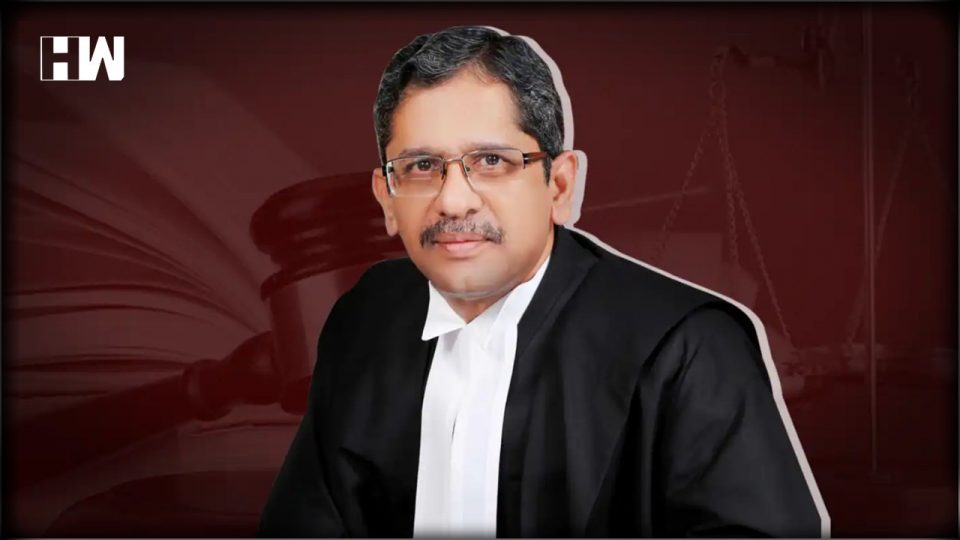CJI Ramana, while talking about the electoral history of independent India said that “the masses have performed their duties reasonably well” and now it is “the turn of those who are manning the key organs of the State to ponder if they are living up to the Constitutional mandate.”
Chief Justice of India NV Ramana on Wednesday said that “the mere right to change the ruler, once every few years, by itself need not be a guarantee against tyranny”,
Virtually delivering the 17th Justice P D Desai Memorial Trust lecture, organized by the Praleen Trust, on the ‘Rule of Law’, quoting legal scholar Julius Stone, said that “elections, day-to-day political discourses, criticisms, and voicing of protests” are “integral to the democratic process”.
CJI: Judges cannot sit in ivory castles and decide questions which pertain to social issues. The path we took to perform our duty without fear or favour, applies equally to government and non governmental entities.
— Live Law (@LiveLawIndia) June 30, 2021
CJI NV Ramana, while talking about the electoral history of independent India said that “the masses have performed their duties reasonably well” and now it is “the turn of those who are manning the key organs of the State to ponder if they are living up to the Constitutional mandate.”
“It has always been well recognized that the mere right to change the ruler, once every few years, by itself need not be a guarantee against tyranny… The idea that people are the ultimate sovereign is also to be found in notions of human dignity and autonomy. A public discourse, that is both reasoned and reasonable, is to be seen as an inherent aspect of human dignity and hence essential to a properly functioning democracy,” he said.
On the need to ensure the independence of the judiciary for maintaining the rule of law, the CJI said: “The judiciary cannot be controlled, directly or indirectly, by the legislature or the executive, or else the rule of law would become illusory. At the same time, judges should not be swayed by the emotional pitch of public opinion either, which is getting amplified through social media platforms. Judges have to be mindful of the fact that the noise thus amplified is not necessarily reflective of what is right and what the majority believes in.”
Also Read: ‘Accept Covaxin, Covishield Or Face Mandatory Q’Tine’: India Toughens Stand On EU COVID Passport
Emphasizing the four principles of the rule of law, the CJI said the first principle embodies that “laws must be clear and accessible”.
“This is the fundamental point that when laws are expected to be obeyed, the people at least ought to know what the laws are. There cannot, therefore, be secretive laws, as laws are for the society.” the Chief Justice said.
“Another implication of this principle is that they should be worded in simple, unambiguous language,” he said.
Enlisting the third principle which guides rule of law, members of society, he said, have the “right to participate in the creation and refinement of laws” that regulate their behaviors.
As an independent media platform, we do not take advertisements from governments and corporate houses. It is you, our readers, who have supported us on our journey to do honest and unbiased journalism. Please contribute, so that we can continue to do the same in future.

